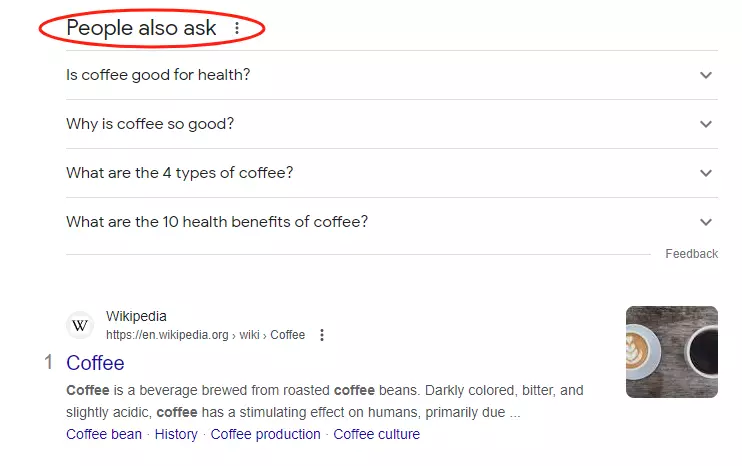
In the dynamic world of digital marketing, mastering SEO is crucial for online visibility and success. While primary keywords are the backbone of any SEO strategy, secondary keywords are equally vital in driving traffic to your website and improving search engine rankings.
Secondary keywords, often means complementary terms or phrases, augment the primary keyword by enriching content depth and catering to additional search queries with topical relevance and similar user intent.
In this comprehensive guide, we'll expalin the importance of secondary keywords and delve into strategies aimed at harnessing their potential to the fullest extent.
What are Secondary Keywords?
Secondary keywords are any terms closely associated with the primary search term targeted by your webpage. These include synonyms, subtopics, and variations of long-tail keywords.
By incorporating these related keywords into the subheadings and body text of your page, you're effectively addressing every significant aspect of a topic, aiding Google in comprehending the essence of your content.
Read More: What Are LSI Keywords?
Why are Secondary Keywords Important?

Keeping secondary keywords at the forefront enables content creators to provide comprehensive coverage of a topic, thereby meeting the expectations of their audience.
Furthermore, upon publication and indexing of your page, the inclusion of these secondary keywords significantly heightens the likelihood of ranking for a multitude of keywords, rather than solely relying on the primary one.
To draw an analogy with the world of SEO and fishing, concentrating solely on a primary search term is akin to casting just one reel into the water. Conversely, incorporating secondary keywords is akin to casting dozens, or even more, reels. While there's no guarantee of landing the coveted giant fish you're after, you're bound to reel in something substantial.
Moreover, there's always the possibility that one of your secondary keywords may prove to be the optimal term for you to rank for.
How Do You Find Secondary Keywords For Your Content?
You can easily find secondary keywords with the following tips.
1. Google Auto-Complete Suggestions
When you commence a search on Google, take note of the auto-complete suggestions that appear as you type your query.
These suggestions are based on popular searches and phrases, offering valuable insight into what people seek. Utilize these suggestions as a starting point for researching secondary keywords, as they have the potential to drive more traffic to your content.
Try inputting your primary keywords and evaluate if the suggestions align with your content's context. This initial step provides a solid foundation for identifying secondary keywords.
2. Experiment with Synonyms and Acronyms
In addition to leveraging auto-suggestions, explore synonyms and acronyms of your primary keywords.
Search engines recognize and consider synonyms and acronyms when displaying search results, making them viable options for secondary keywords.
3. Explore the "People Also Ask" Section

After searching on Google, navigate to the "People Also Ask" section located at the bottom of the search results page. The queries listed here serve as potential secondary keywords.
Look for recurring patterns within this section and incorporate relevant suggestions into your content, ensuring alignment with your audience's interests.
4. Analyze Competitor Pages
A strategic approach to discovering secondary keywords involves examining competitor pages or those competing for your primary keywords. Utilize keyword research tools such as Ahrefs and Semrush to obtain a comprehensive list of keywords your competitors are ranking for.
These tools provide insights into related keywords and their rankings, facilitating the selection of secondary keywords for your content.
5. Craft Content Tailored to Your Audience
When devising your keyword strategy, prioritize understanding the search intent of your target audience. This requires a thorough understanding of your audience and the creation of a customer profile. Focus on keywords that resonate with your audience's interests and preferences.
Consider what products or services you offer and anticipate the phrases and terms your audience is likely to use in their searches.
Leverage tools like Google Trends and Google Keyword Planner to identify secondary keywords aligned with your audience's search behavior.
How Do You Choose These Secondary Keywords?
When selecting secondary keywords, you can ease up on concerns regarding search volume and difficulty compared to primary keywords.
Nonetheless, it's advantageous to prioritize terms with high search volume and low difficulty, as this maximizes your likelihood of ranking for them.
Adopt the following framework to pinpoint 2-3 secondary keywords to emphasize within your content, recognizing that well-crafted and comprehensive content will naturally lead to ranking for numerous other keywords.
Conclusion on Secondary Keywords
Secondary keywords seamlessly integrate into your content when it's comprehensive and well-crafted. However, taking a more intentional approach towards incorporating them can broaden your reach while ensuring thorough coverage of relevant topic facets.
For mental wellness brands, visibility in search results and delivering informative content are paramount. Therefore, overlooking this aspect of your SEO strategy is not advisable.

